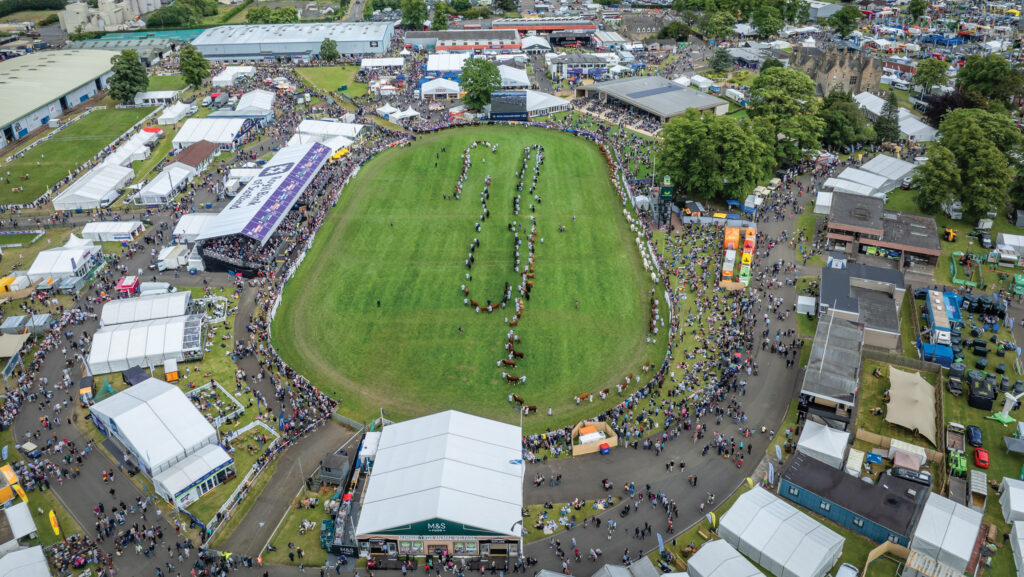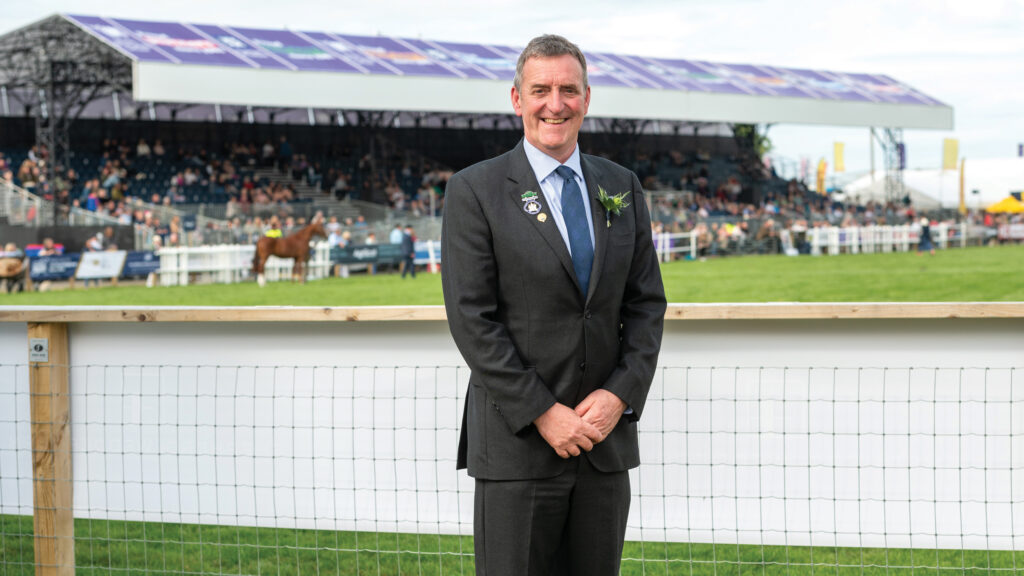Royal Highland Show 2025: Mission to attract next generation
 Royal Highland Show © Muckle Media PR Agency
Royal Highland Show © Muckle Media PR Agency As the Royal Highland Show 2025 fast approaches, excitement is mounting for what promises to be another unforgettable celebration of Scotland’s rural life, food, farming and innovation.
Running from June 19-22 at Ingliston, near Edin-burgh, this year’s event stays true to its agricultural roots while embracing bold new ideas aimed at strengthening the future of farming.
James Logan, chairman of the Royal Highland and Agricultural Society of Scot-land (RHASS), which organises the show, says it remains “very much a real agri-cultural event”.
See also: Governance reforms aim to secure Highland Show’s future
Livestock, machinery, food, education and entertainment all feature under one vast umbrella.
“We’re sticking to our core – showcasing livestock, big kit and the best of farming – but we’re also showing how agriculture touches everything from food to tech,” he explains.

James Logan, RHASS chairman © Muckle Media PR Agency
Education theme
This year’s theme, Education, is central to the Royal Highland Show’s mission to attract new generations into the sector.
“People forget how broad agriculture is. It’s not just about feeding animals. It’s tech, machinery, science and food,” says Mr Logan.
He is a third-generation East Lothian potato and arable farmer, whose father Willie was also an RHASS director.
The show will offer immersive experiences for schoolchildren and families alike, encouraging engagement through everything from hands-on demos to expert talks.
For farmers, the Presidential Initiative Tent, sponsored by RBS, will be a must-visit.
Focusing on solutions to net zero, it includes live demonstrations of genetic research into methane-reducing livestock, hydrogen-powered engines, and talks from industry leaders in agri-tech.
“We’re trying to lead the discussion around sustainability, not just be told what to do,” Mr Logan says.
Other attractions include livestock parades and the heavy horse displays in the UK’s largest main show ring.
Machinery and trade stands will be packed, and top-tier food and drink offerings promise to make this year’s culinary line-up stronger than ever.
Royal Highland Show: 5 key facts and figures
- The Royal Highland Show raised more than £700,000 in sponsorship for RHASS in 2024.
- The event attracts over 200,000 visitors, making it Scotland’s sixth largest “population” during the week; children under 16 enter free.
- The show adds £39.5m annually to Edinburgh’s economy (2022 report).
- British sign language interpreters will be available for key events on Saturday for the first time.
- The inaugural sheepdog trials will take place in the Main Ring on Thursday evening in 2025.
Entertainment and community
Beyond the farming content, the show is also ramping up entertainment.
The Royal Highland Hoolie, which takes place on the evenings of Friday and Saturday, is back for a third year to bring the best of Scottish and Irish folk and coun-try music to the fore.
Acts such as country singer Nathan Carter, rising star Cammy Barnes and social media sensation Nati Dreddd will take to the stage.
Social connection and farmer wellbeing remain vital. “Farming can be a lonely job,” says Mr Logan.
“Shows are that place where you can just sit down with someone and say, ‘How are you doing?’ That matters.”
With ticket sales on track, strong sponsorship, and a packed programme, there’s something for everyone.
“Bring a carload of friends, have a couple of burgers and maybe even buy a tractor,” he says. “It’s a celebration – of our in-dustry, our resilience, and our future.”
Tickets for the Royal Highland Show can be purchased at royalhighlandshow.org
Livestock exhibitors: Bluetongue restrictions explained
Exhibitors planning to show livestock at the show should be aware of strict bluetongue movement restrictions.
Royal Highland and Agricultural Society of Scotland (RHASS) chairman James Logan confirmed that any livestock from bluetongue control zones will not be eligible to attend, regardless of prior entry.
“If you come from a bluetongue area, unfortunately, you won’t be able to exhibit,” he says.
Critically, livestock cannot travel through bluetongue zones, even if their home address is outside the affected area.
This precaution is aligned with national biosecurity policy and supported by other major UK agricultural shows.
“We’re not being negative – we’re protecting the majority of exhibitors who can attend, and the animals they bring with them. Our goal is a safe show for everyone – people and livestock alike,” he says.
Exhibitors affected by bluetongue restrictions can request a refund, opt for four-day wristbands instead, or donate their entry fee to RHASS.
Exhibitors are urged to check regularly as restrictions may shift in the lead up to the event.
The most up-to-date information, including affected zones and movement rules, can be found on the Royal Highland Show website.
